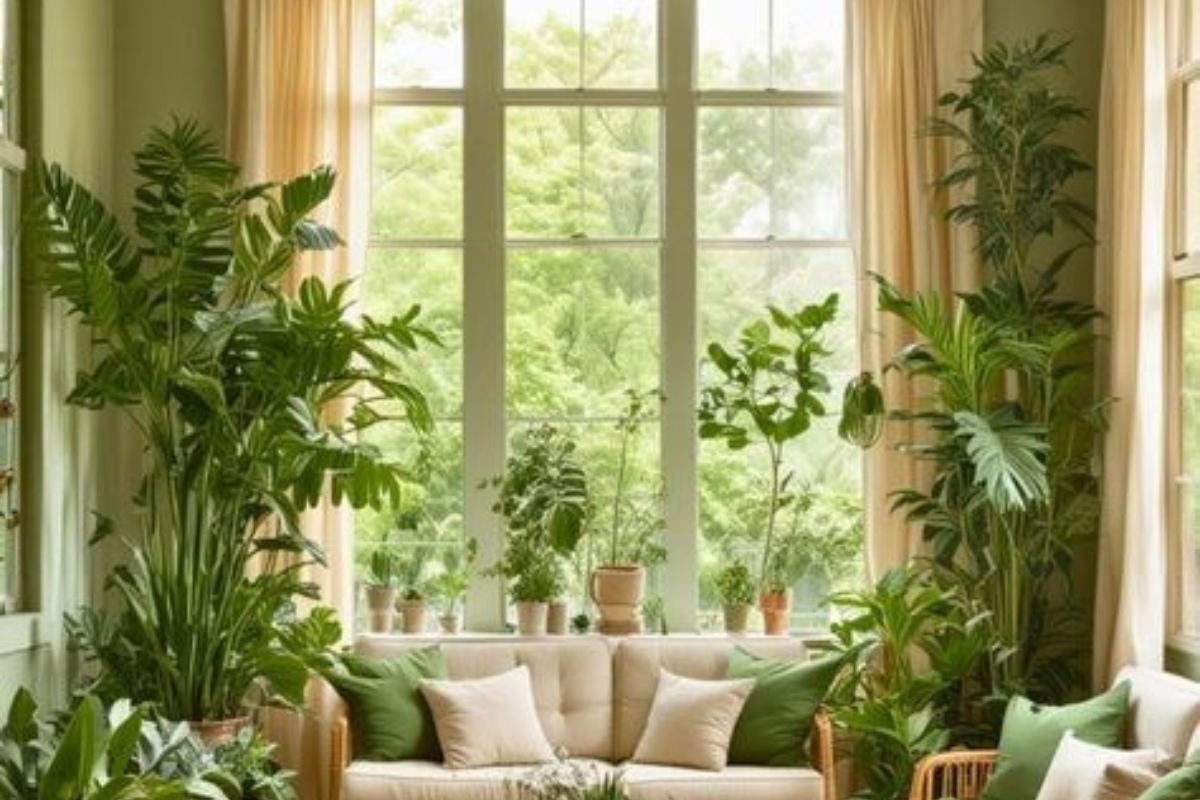Houseplants add beauty, tranquility, and fresh air to your home, but keeping them healthy can sometimes be tricky. Fortunately, with the right care, your houseplants will flourish. Here are 10 essential tricks to ensure your plants stay happy and healthy all year round.
1. Understand Your Plant’s Needs
Each plant has specific light, water, and temperature requirements. Do some research on your plant species to know exactly what it needs. For example, succulents and cacti thrive in direct sunlight, while ferns prefer low light and humidity.
2. Water Properly
Overwatering is one of the most common mistakes when caring for houseplants.
- Check the Soil: Water your plants only when the top inch of soil is dry to the touch.
- Use a Tray: For plants in pots, use a tray to catch excess water and prevent root rot.
3. Ensure Proper Drainage
Always choose pots with drainage holes to ensure water doesn’t pool at the bottom, which can cause root rot. If using a decorative pot without drainage holes, place a layer of stones at the bottom of the pot to encourage water flow.
4. Rotate Your Plants
Plants naturally lean toward light, so rotate your plants every few weeks to encourage even growth. This will also help avoid lopsided growth or bending.
5. Humidity Matters
Many houseplants, especially tropical ones, require higher humidity.
- Increase Humidity: Use a humidity tray (a shallow dish filled with water and pebbles) or a humidifier to boost moisture levels.
- Misting: Light misting can also help, especially in dry indoor environments.
6. Fertilize Sparingly
Over-fertilizing can burn plant roots. Use a diluted, balanced fertilizer and only apply during the growing season (spring and summer) when your plants are actively growing.
7. Prune Regularly
Regular pruning promotes healthy growth and removes dead or damaged foliage. Prune back overgrown stems and leaves to maintain the plant’s shape and overall health.
8. Check for Pests
Regularly inspect your plants for signs of pests like aphids, spider mites, or mealybugs. If you notice any, isolate the plant and treat it with an organic pest control solution.
9. Repot When Necessary
If your plant outgrows its container or the soil becomes compacted, it’s time to repot. Choose a slightly larger pot and refresh the soil to ensure the roots have room to expand and grow.
10. Provide the Right Light
Light is one of the most crucial factors in plant health.
- Indirect Light: Most houseplants do best in bright, indirect light.
- Rotate for Even Growth: If your plant starts leaning toward the light, rotate it periodically for even growth.
